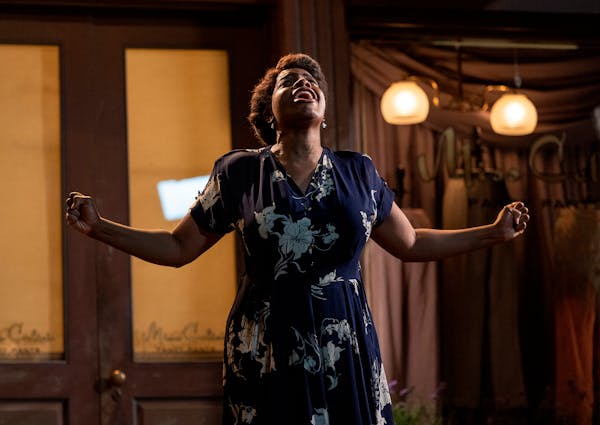No actor in 2023 has committed to a role more than Emma Stone does in "Poor Things."
If many of her past choices have seemed safe, "Poor Things" — her second collaboration with "The Favourite" writer/director Yorgos Lanthimos — suggests that she may be heading in a bold new direction. The movie is bonkers and her acting embraces Lanthimos' vision, body (all of her body) and soul.
Stone plays Bella, who's basically a prettier Frankenstein's monster, created in a lab by a mad scientist. He's named Dr. Godwin Baxter (Willem Dafoe) but she just calls him "God." The circumstances around Bella's creation aren't initially revealed, but Dafoe's emotional remoteness suggests that he has difficulty understanding basic elements of humanity. And, although he's affectionate with Bella, revelations about his abusive childhood hint at a lack of compassion or empathy. ("She's an experiment," he says of Bella, "and we must control the conditions or our results will not be pure.")
Bella always looks like a grown woman, albeit one with wild eyebrows, but over the course of the movie Stone shows her maturing from preverbal infancy (she was, in a way, just born) to full womanhood. It's a remarkable performance and, although Stone has often been terrific, nothing we've seen from her suggested she'd be up for this sort of thing.
Baxter keeps Bella locked up in their Victorian mansion (the movie seems to be set in the 1890s) until a suitor comes calling and whisks her to Portugal (actually, a deliberately fake-looking set). There, she begins to come into her own, emotionally and — especially — sexually (she likes the act, which she refers to as "furious jumping").
"Poor Things" is a comedy, and Lanthimos juggles several different kinds of funny, from Dafoe's deadpan pronouncements ("I'm something of a romantic," he says, just before letting out a gigantic burp) to Mark Ruffalo's suitor, who's like a wildly gesticulating, over-the-top silent movie villain. It's clear Lanthimos creates a wild atmosphere where artists are encouraged to go for broke, but "Poor Things" doesn't feel like a loose, improv-heavy mess. I'm guessing that the movie, which begins in black and white but shifts to color when Bella begins to discover the world, turned out exactly as he intended.
Here's the thing, though. Lanthimos seems to think there's more going on in "Poor Things" than there is. When it comes down to it, it's one of those wildness/civilization allegories that asks who's really more civilized: Bella, who responds impulsively and rebels against rules of polite society, or the wealthy snoots who belittle the less fortunate and talk about Bella behind her back?
It's not exactly a revelatory theme, and Lanthimos has explored it better in previous works, such as "Dogtooth," "The Lobster" and "Favourite." Bella's character does develop in some surprising ways, but "Poor Things" still leaves us with an entry in the old nature-vs.-nurture argument and, not surprisingly, it comes to no conclusions.
'Poor Things'
*** out of 4 stars
Rated: R for graphic nudity, strong language and violence.
Where: In theaters.

The 5 best things our food writers ate this week

A Minnesota field guide to snow shovels: Which one's best?

Summer Camp Guide: Find your best ones here

Lowertown St. Paul losing another restaurant as Dark Horse announces closing

